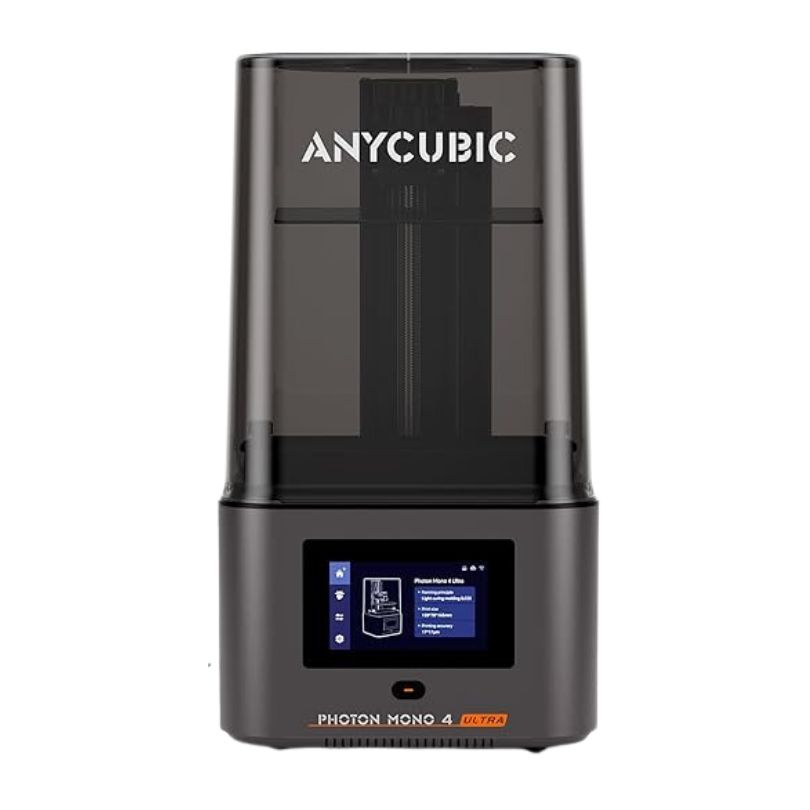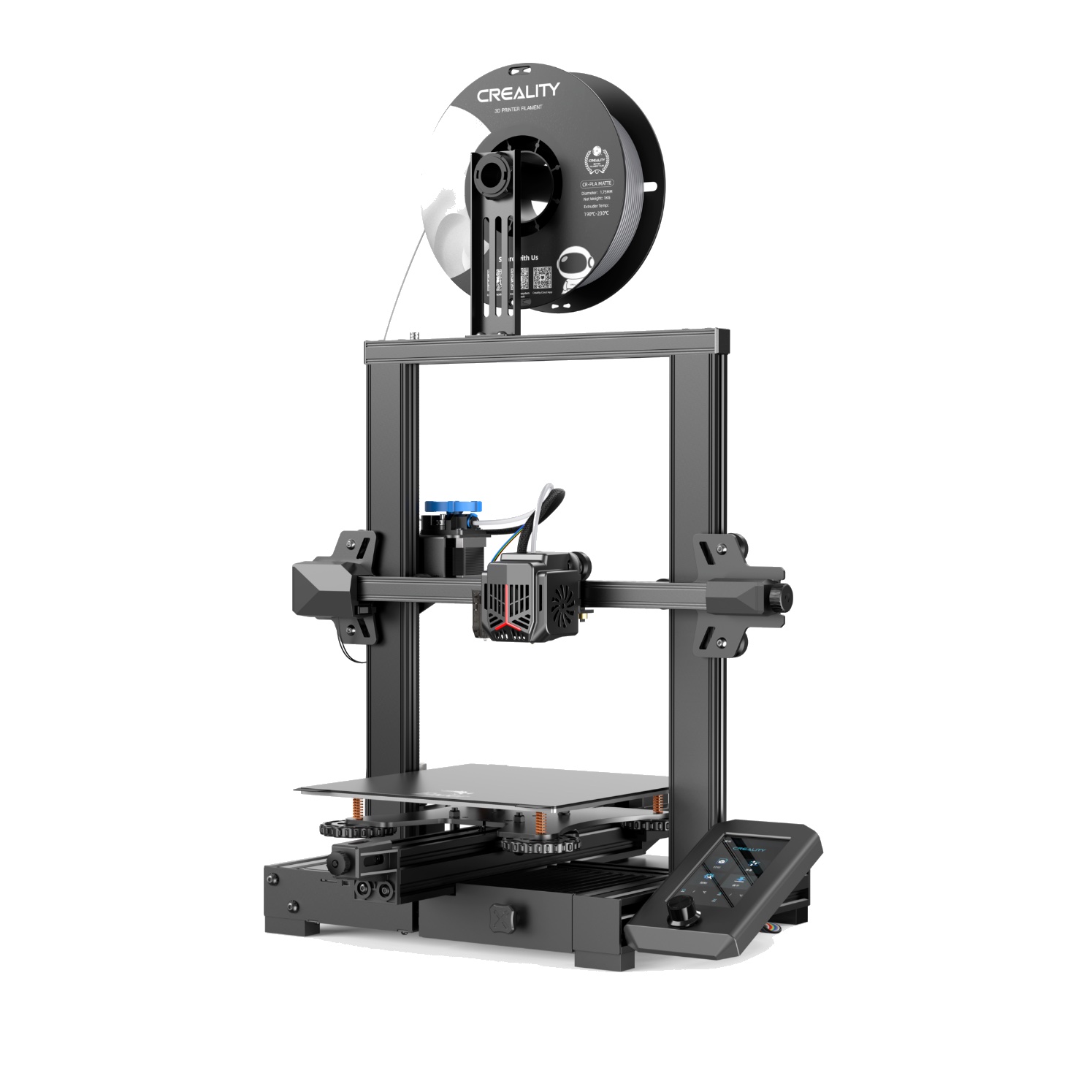Compare Photo Mono 4 Ultra vs Ender 3 V2 Neo
Comparison between the best 3D printers
Choose the best 3D printer at the best price. The cheapest 3D printers are here.
Buy a 3D printer here with 3D Fila.
 |
 |
|
| Model | Photo Mono 4 Ultra[BUY Photo Mono 4 Ultra] |
Ender 3 V2 Neo[BUY Ender 3 V2 Neo] |
| Printing Material | Resin | Filament |
| Buy Resin for Anycubic Photo Mono 4 Ultra | Buy Filament forCreality 3D Ender 3 V2 Neo | |
| Estimated price | $250,00 | $310,00 |
| Manufacturer | Anycubic | Creality 3D |
| Release Year | 2024 | 2022 |
| Print Volume [mm] | 153x87x165 | 220x220x250 |
| Printer Size [mm] | 231x236x430 | 438x424x472 |
| Weight [kg] | 5 | 9,8 |
| Power Loss Recovery | NO | YES |
| Maximum Resolution [mm] | 0,01 | 0,1 |
| Processor | 4.2.2 mainboard | |
| Display | Touchscreen 4.3'' | Display touchscreen 4,3'' |
| Power Supply | ||
| Connectivity | USB | SD / USB |
| Operating systems | Windows, Mac | Windows, Mac, Linux |
| Date of registration in the system | 2024-12-13 | 2022-12-09 |
| Release date | 2024 | 2022 |
| Extra features | The Anycubic Photon Mono 4 Ultra features 10K resolution (9024x5120) with 17x17um pixels and high light uniformity (>=90%) enabled by the COB system with Fresnel lens and uniformity algorithm. It offers a build volume of 153.4x87x165 mm and speeds up to 120 mm/h with high-performance resin. It includes assisted leveling, built-in Wi-Fi, and a redesigned platform for better adhesion and easy model removal. Additionally, it has a print resumption function after power outages, optimizing time and materials. | The Ender 3 V2 Neo printer stands out for its automatic bed leveling with the CR Touch system, ensuring high-quality initial layers. It features an all-metal Bowden extruder for increased durability and improved filament handling. Its flexible, PC-coated magnetic build plate makes it easy to remove prints and is durable and easy to clean. It also includes a new user interface with model preview and an updated gantry design. The Ender 3 V2 Neo maintains the same build volume and temperatures as the previous version, supporting popular filaments such as PLA and ABS. It features a quiet 32-bit mainboard and additional features such as a filament sensor, print recovery, simple 3-step assembly, an integrated toolbox, and belt tensioners. |
| Support for multiple colors and materials (AMS and CFS) | NO | NO |
Notes * |
||
| Cost-benefit | 8 / 10 | 6 / 10 |
| Hardware | 5.6 / 10 | 2.4 / 10 |
| Tela | . | . |
| Print volume | 3 / 10 | 3 / 10 |
| Performance | 9 / 10 | 0 / 10 |
| [BUY Photo Mono 4 Ultra] | [BUY Ender 3 V2 Neo] |
Conclusion |
| In comparing the Anycubic Photon Mono 4 Ultra and the Creality Ender 3 V2 Neo, several key differences emerge that can guide potential buyers in making an informed decision based on their specific needs and budget considerations. The Anycubic Photon Mono 4 Ultra is an advanced resin printer that excels in print resolution, offering a maximum resolution of 0.01 mm, significantly higher than the Ender 3 V2 Neo's 0.1 mm. This makes the Photon Mono 4 Ultra ideal for projects requiring intricate details and smooth finishes. Additionally, it features modern enhancements such as built-in Wi-Fi and a power loss recovery function, which further streamlines the printing process. However, its print volume is smaller, which may limit the size of the objects users can create. On the other hand, the Creality Ender 3 V2 Neo is a robust FDM printer that provides a larger print volume, allowing for bigger projects. It has a commendable price-to-performance ratio and includes useful features such as automatic bed leveling and a flexible build plate, enhancing user convenience and print quality. Despite its lower resolution, the Ender 3 V2 Neo offers versatility in material compatibility, making it a good choice for various filament types. Ultimately, the choice between these two printers should reflect the user's priorities. If high-resolution printing with detailed results is paramount, the Anycubic Photon Mono 4 Ultra presents a compelling case. However, for those who prioritize a larger build volume, versatility in materials, and ease of use at a competitive price, the Creality Ender 3 V2 Neo may be the better option. Each printer addresses different needs effectively, ensuring that users can find a model that best fits their 3D printing goals. |

